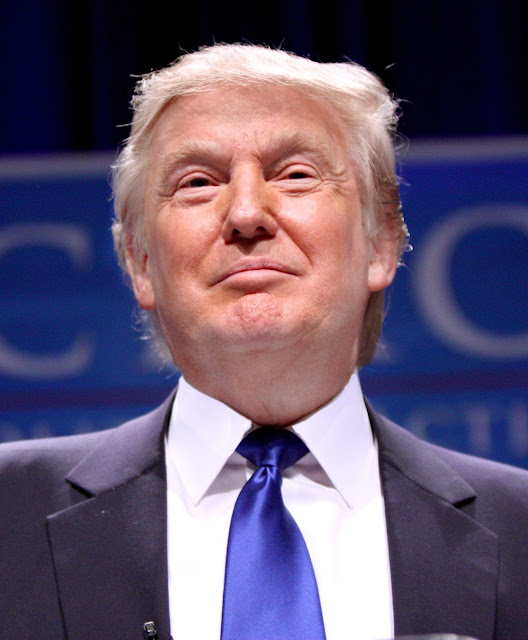Donald Trump Knew the Significance of Money Before He Could Even Tie His Shoes | By Dr. Brad Kayden
 |
| Donald Trump Photo credit: Gage Skidmore |
Beyond just knowing money's significance, research recently conducted by the University of Minnesota has made other interesting discoveries about the relationships young children share with money.
As Professor Kathleen Vohs, the Land O'Lakes Chair in Marketing at the University of Minnesota and co- author of the study puts it, "Money is a double-edged sword. It produces good outcomes in terms of concentration and effort, but bad outcomes when it comes to helping, taking, and donating."
The study she co-authored was published in the December 2015 issue of Psychological Science. It tested 550 children in Poland and in the United States. Using money, buttons and candy, researchers made children complete a variety of tasks like:
- Sorting money or buttons and then completing a puzzle.
- Sorting money or buttons and then assisting an experimenter to get a task ready for the next child.
- Sorting money, buttons or candy and then choosing a sticker; and then either
- Donating a sticker(s) to another child who did not participate or keeping the sticker(s) for themselves.
The results remarkably demonstrate the good outcomes in terms of concentration and effort, but bad outcomes when it comes to helping, taking and donating Vohs talks about:
Sort & Complete a Puzzle Test
Experimenters found that the children who sorted the money first worked harder. 73% spent at least two minutes on completing the puzzle verses 56% of their counterparts who had sorted buttons first.
Sort & Assist the Experimenter Test
Experimenters found the children who sorted the money first were less helpful working with the experimenter to acquire crayons for the next participant versus their button-sorting counterparts.
Sort & Choose a Sticker Test (candy was added to the sort)
Experimenters found 100% of the children who sorted money first took at least three stickers. Only 78% of children who sorted candies took three or more stickers and 76% of children who sorted buttons took three or more stickers.
Donation of a Sticker Test
After experimenters told the children they could donate stickers to those children that did not participate, the children who sorted money first donated half as many stickers as those who sorted candy or buttons.
So, What does it all mean?
Essentially, young children who possess little to no understanding of money's purpose have been shown, despite the monetary denomination, that the act of handling money causes them to work harder but give less.
At this point, you may be wondering how your child would stack up. Do you have a generous child? And are you, as a parent, playing your part to ensure they develop the relationship with money you most want them to?
What this study indicates is that you likely have little or no influence over this process. This research is consistent with patterns or common and basic properties that exist for all of us, adults and children, when it comes to the psychology of money. Similar studies done on adults have shown consistent findings and likewise culturally-oriented studies of money conducted across Europe, Asia and North America have also yielded similar findings.
In effect, it could be said that we all have a little Donald Trump inside of us or even a little Ebenezer Scrooge.
Reference
Journal Reference
- Kathleen Vohs et al. Money Cues Increase Agency and Decrease Prosociality Among Children: Early Signs of Market Mode Behaviors. Psychological Science, December 2015
Source Reference
- University of Minnesota. (2015, December 2). Money affects children's behavior, even if they don't understand its value. ScienceDaily. Retrieved December 2, 2015 from www.sciencedaily.com/releases/2015/12/151202132659.htm

Comments
Post a Comment